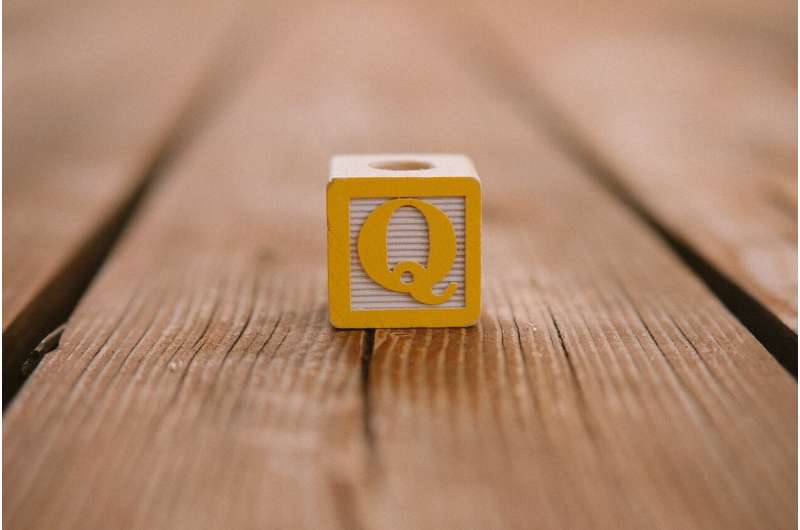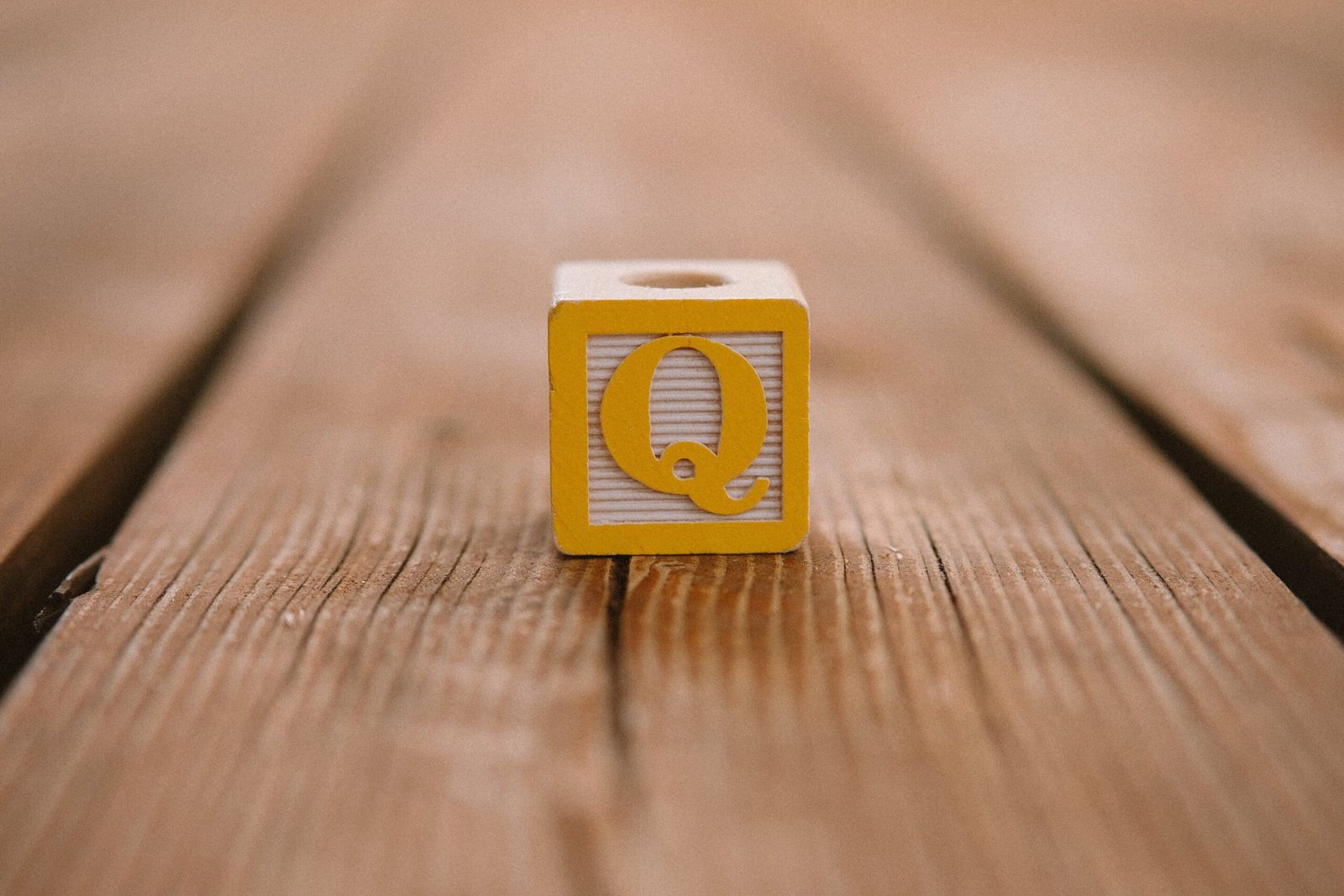
The 1969 moon landing? Fake. The assassination of President John F. Kennedy? Cuba really did it. Thomas Jefferson’s bitterly contested election in 1800? Choreographed by hidden hands.
Political conspiracy theories have long found receptive audiences in the U.S., often on the fringes of society. Among the best-known today is QAnon, a set of fabricated claims that a group of Satan-worshiping pedophiles controls American politics and media. At its center is an anonymous oracle known as “Q.”
Since 2021, QAnon belief among Americans jumped from 14% to 23%, while the percentage of skeptics declined from 40% to 29%, according to a national survey published last fall by the nonpartisan Public Religion Research Institute (PRRI).
A new book, “The Quiet Damage: QAnon and the Destruction of the American Family,” delves into the private lives of some believers, chronicling the painful emotional and financial toll this elaborate conspiracy has taken on ordinary people.
Author Jesselyn Cook, a tech reporter who joins Harvard this fall as a 2024–2025 Nieman Fellow, spoke to the Gazette about why so many have fallen under the spell of QAnon and why the Big Tech platforms are only partly to blame. Interview has been edited for clarity and length.
How did QAnon go mainstream and what was so compelling about it that you became interested in the human toll it took?
October 2017 was the first post from Q on the online forum 4chan. Very few people knew it existed back then. This was around the time Pizzagate [a false conspiracy theory about a pedophile ring run by the Hillary Clinton presidential campaign from a Washington, D.C., pizzeria] was starting to blow up with the 2016 election.
The platforms that it migrated onto didn’t do much. They allowed it to spread and grow. By the time Facebook and then Twitter and YouTube took action, most people already knew the name QAnon.
I had been lurking on some of these online forums for a while, watching QAnon in these dark corners of the internet, feeling like it was a little maddening to see it unfold, and no one really talking about it.
But then, in 2020, it became something we couldn’t ignore anymore. I think it was a lot of things coming together all at once. COVID put a lot of people in a really vulnerable place. There were these huge information voids that QAnon influencers rushed to fill quite effectively. They tried to answer questions with a lot of misleading and weaponized false information and took advantage of people’s fear. We’re very aware of what it’s done to our democracy and to our public health, but we don’t really see what’s going on behind closed doors with families.
You call QAnon not just a conspiracy theory, but ‘a movement.’ Why?
You don’t hear today the word QAnon as much. “Q,” the figure at the center of the movement, is no longer posting, but the ideas have really been normalized and seeped into our culture.
The polling by the nonpartisan Public Religion Research Institute suggests that around one in five Americans believes that our financial, media, and government worlds are controlled by a cabal of Satan-worshiping pedophiles, which is the core of the belief system.
The reason I call it a movement more than just a theory is because every conspiracy theory out there can be stitched into QAnon. It’s so much more than just this idea of “the cabal” and Donald Trump and “the storm” [a foretold conflict in which Trump defeats the cabal].
It’s now antivaxx conspiracy theories; you’ll see some flat Earth stuff in there; and every little idea that there’s corruption going on gets woven into it. People have devoted their lives to this; they really do feel like digital soldiers in a movement. And so, to call it just a theory feels like it’s really not representative of the big picture.
The book focuses on five very different QAnon believers, but you interviewed hundreds of people in your reporting. Did you find any common psychological and sociological factors among believers or their families?
I did. I think there’s this misconception that the people who are susceptible to QAnon-type falsehoods have a low IQ or they’re mentally unstable. But what I found in talking to so many people is that they’re not fulfilled in their lives. They’re not doing well; they’re not happy. There’s some unmet need they have, and conspiracy theories fill that. Whether it’s purpose or meaning, they want something hopeful to latch onto and QAnon makes all these grand promises.
Also, something that all these characters, maybe with one exception, have in common is a sense of powerlessness. To be a conspiracy theorist really demands a victim mentality because you’re convinced that there’s some grand entity, some evil, shadowy network working against your interests.
For a lot of people, they come by this mentality naturally because they have been victims of oppression and abuse, maybe for generations or centuries. A lot of minorities and marginalized groups, in particular, can be vulnerable because they have very legitimate reasons not to trust the people in power and to be very skeptical and suspicious of our public institutions.
On the other end of the spectrum, the more privileged people can be conditioned to feel powerless. With one mother in the book, it was on Fox News where she’s told again and again “Your rights are being trampled all over, the powers that be are going to take away everything you care about.”
When you’re conditioned to feel like a victim of the establishment, it’s much easier to fall for anti-establishment conspiracy theories. So, there are a lot of different pathways into this, but it really comes down to feeling unfulfilled, feeling disenfranchised, feeling powerless—for valid reasons or otherwise.
There is a perception that believers have been hoodwinked, and if only presented with facts, they’d snap out of it. You found that’s not the case. Why not?
I think a lot of the loved ones I spoke to have been very frustrated by that. Because logically, it makes sense. If someone is spewing fiction, you bring them facts, and that should help. But what I found through my reporting is that this isn’t about the truth. The truth is almost beside the point when you get to the QAnon level of conspiracy theory espousal.
If someone is drawn to QAnon because it makes them feel important, it makes them feel like they belong, it makes them feel like they matter, gives them a sense of hope, that’s where you need to start. What is really going on here? What’s drawing them to this movement in the first place? You need to understand, how can we help you restore purpose outside of QAnon? How can we find a hobby or a volunteer effort or a job that’s going to give you that sense of fulfillment and sense of purpose?
In the success stories that I’ve seen, that’s where it started. I think [believers] know on some level that what they’re holding onto isn’t true, but it feels good, so they’re clinging on regardless. That’s why facts just aren’t going to chip away in the way that you might think they should.
You say we’re looking at this as a social media problem, when it’s really ‘a wellness crisis’ because believers are drawn to these conspiracy theories as a coping mechanism for unresolved trauma. What led you to that conclusion?
I definitely went into writing this book with the impression that this was just a tech problem. I’ve been a tech reporter for many years, and I looked at social media as the sole cause of this crisis. Some people would go on Facebook and be sucked into rabbit holes and others wouldn’t. It came down to this underlying vulnerability that I hadn’t given as much thought to. It’s clear right now is a difficult time.
Many people just aren’t doing well. COVID was a big factor, loved ones and jobs and opportunities were lost, the world we came back to was, in many ways, worse than the one we left behind. Conspiracy theories can serve as a crutch [and] can act in a similar way to drugs and gambling.
I don’t want to say that social media isn’t a factor because, of course, it is. Social media has dumped gasoline on this problem and made it harder to get out and maybe easier to fall in. But the people who do go down the rabbit hole, in almost every case that I reported on, they were vulnerable in some way in the first place. And so, if we can shift our approach by looking at it also as a wellness crisis and intervene in that way, I think we’ll see people being less susceptible. If people have better coping mechanisms and if they’re doing better in general, they’re not going to be as susceptible even in this treacherous online landscape.
What are some successful strategies people have used to pull family members out?
The expert recommended strategies I saw to be effective, and that many people recommended to me, were Socratic questioning and motivational interviewing.
Motivational interviewing is putting aside the true and false and saying, “Let’s step back and look at the big picture. What is this doing to your life?”
In so many cases, people who get really deep into something like QAnon cause immense destruction to a lot of things they hold dear—demolishing relationships, jeopardizing their careers, losing a lot of money, and compromising their dignity. You’re not getting caught up in trying to fact-check or trying to change minds. You’re trying to give a little more perspective and do it with compassion. Same with the Socratic questioning method.
It’s hard because when people get to the QAnon level, it’s not just something they believe, it becomes part of who they are. And when people latch onto these ideas so tightly, anything that contradicts their conspiracy theories feels like an attack, and so they get very defensive.
For the loved ones who are trying to shake some sense into them, they can become the target of hostility and cruelty and personal attacks, and it can wear you down. Sometimes, stepping away is the best thing you can do for yourself, which is hard.
More information:
Cook, J. The Quiet Damage: QAnon and the Destruction of the American Family
Provided by
Harvard University
This story is published courtesy of the Harvard Gazette, Harvard University’s official newspaper. For additional university news, visit Harvard.edu.
Citation:
Q&A: Author explores the toll of QAnon on families of followers (2024, September 2)
retrieved 2 September 2024
from https://phys.org/news/2024-09-qa-author-explores-toll-qanon.html
This document is subject to copyright. Apart from any fair dealing for the purpose of private study or research, no
part may be reproduced without the written permission. The content is provided for information purposes only.
